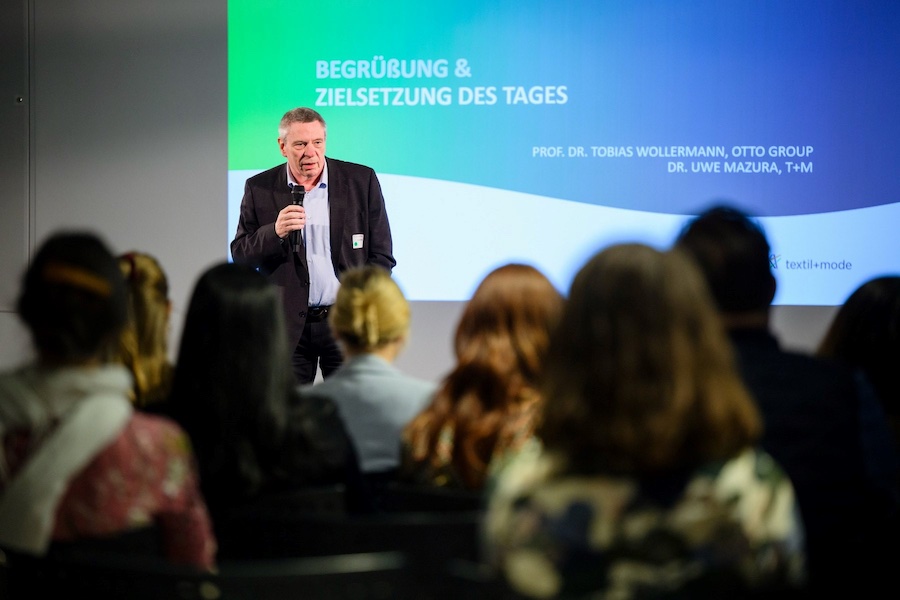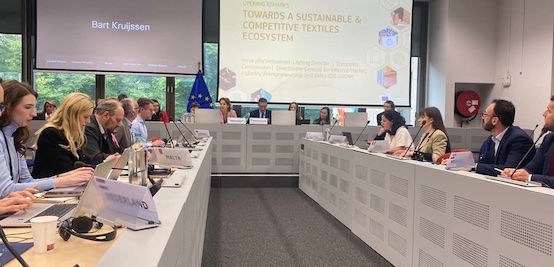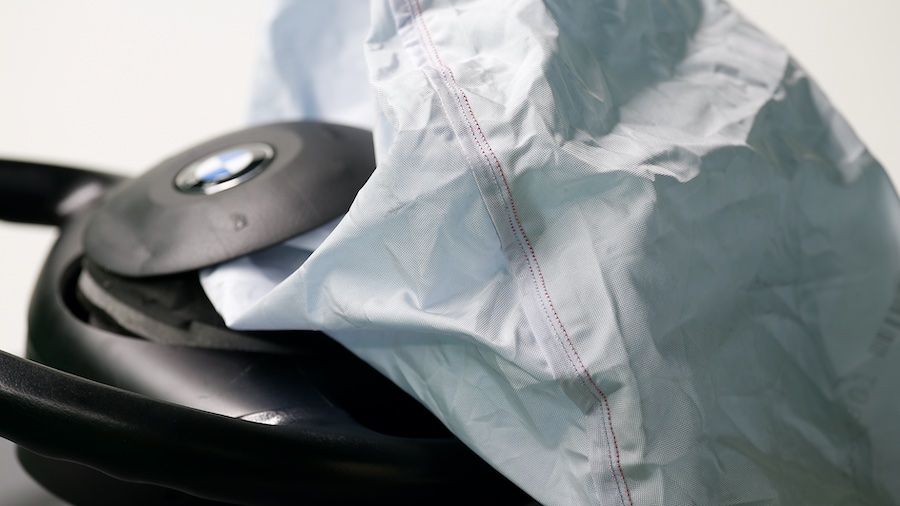#EU Textile Strategy
Germany pushes ahead with Producer Responsibility for Textiles

While the European Commission is currently revising the Waste Framework Directive to include EPR for textiles across all EU member states, Germany is preparing for implementation by launching an inclusive national dialogue involving stakeholders from every part of the value chain.
The initiative was spearheaded by the German Textile and Fashion Industry Association (Gesamtverband textil+mode), the Joint Take-Back System Service Company (GRS), and the Otto Group. More than 80 participants—including manufacturers, retailers, political decision-makers, waste management experts, and civil society organisations—gathered on the Otto Group campus in Hamburg to discuss what a fair and effective EPR system for textiles should look like in Germany.
For Dr Uwe Mazura, CEO of the German Textile and Fashion Association, there is no question that the medium-sized textile and fashion industry wants to take responsibility for its products: ‘We say a clear yes to producer responsibility. We have done so in the past and will continue to do so in the future if required by law. However, this also means that we do not just want to pay, but also have a say and play a role in shaping transparent and sustainable take-back systems. Our industry can create genuine recycling loops through extended producer responsibility, but we do not need bureaucratic and expensive structures.’The stakeholder discussions focused on how to design EPR in a way that reflects real industry needs—transparent, pragmatic, and without excessive bureaucracy. In particular, participants stressed the importance of fair international competition.
“As the name suggests, producer responsibility should also be significantly shaped and borne by producers. What has gone wrong with producer responsibility in other product areas should not be repeated for textiles under any circumstances,” said Dr.-Ing. Julia Hobohm, Managing Director of GRS mbH.
For Otto Group, one of Europe’s leading e-commerce companies, international fairness is crucial. “To create a fair and transparent trading world, we must minimise bureaucracy while ensuring effective market surveillance. Asian platforms should follow the same rules as European online retailers in order to achieve a level playing field, including in the implementation of the circular economy that the EU is pursuing with the Green Deal,” said Prof. Dr. Tobias Wollermann, Vice President Group Corporate Responsibility at Otto Group. “Our goal is to develop cost-effective solutions for manufacturers and retailers and clear definitions to prevent distortions of competition and create space for responsible and forward-looking action.”
In four workshops, the conference participants developed recommendations for action based on the key issues paper presented by the German Textile and Fashion Association last year, focusing on the following questions:
How should an EPR system be designed?
How should a joint manufacturer register textiles and monitor the market?
How should existing collection structures be maintained and further developed?
How should consumers be informed so that the goal of sustainable textile consumption is ultimately achieved?
The participants agreed that an effective and sustainable EPR system can only be established if all stakeholders – from manufacturers to retailers to the waste management industry – work together. The requirements of the manufacturing industry affected must be central to the future design of any system.
‘We will take the many valuable ideas from this dialogue with us into further political discussions. Our goal is an EPR system that is not only ecologically sound, but also economically viable and low on bureaucracy,’ said Uwe Mazura.
The findings from this stakeholder dialogue will now be compiled into a joint concept paper by the German Textile and Fashion Association. This paper will feed directly into Germany’s contribution to EU-level policymaking and serve as a model for implementing extended producer responsibility in the textile sector across Europe.











